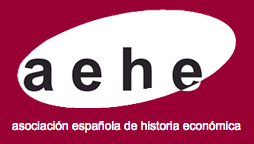Revenue collection contracts in the municipality of Coimbra (Portugal): the role of transaction costs and risk in contract choice (1557-1836)
DOI:
https://doi.org/10.33231/j.ihe.2025.01.01Keywords:
Transaction costs, Risk, Municipal revenue, ContractsAbstract
This study aims to analyse revenue collection contracts in the municipality of Coimbra (Portugal), from 1557 to 1836. It will focus on examining the role of transaction costs and risk in contract selection. It is documented that from the sixteenth century to the early nineteenth century, the municipality of Coimbra used three types of contracts with private contractors, namely fixed-price, salary, and sharing contracts, although most were of the fixed-price type. The central question explored here is the influence of transaction costs and risk on the decision-making process for indirect collection contracts. The findings indicate that the municipality aimed to minimize both transaction costs and risk, leading mainly to the use of fixed-price contracts. In this arrangement, the agents (revenue contractors) bore responsibility for both the risk and the costs associated with the collection process. From 1739 onwards, the municipality shifted to direct rather than indirect collection methods, introducing additional constraints.
Downloads
Downloads
Published
How to Cite
Issue
Section
License
Copyright (c) 2025 José Luís dos Santos Barbosa

This work is licensed under a Creative Commons Attribution-NonCommercial-NoDerivatives 4.0 International License.
Aquellos autores/as que tengan publicaciones con esta revista, aceptan los términos siguientes
- Los autores/as conservarán sus derechos de autor y garantizarán a la revista el derecho de primera publicación de su obra, el cuál estará simultáneamente sujeto a la Licencia de reconocimiento de Creative Commons Reconocimiento-No comercial-Sin obra derivada 4.0 Internacional que permite a terceros compartir la obra siempre que se indique su autor y su primera publicación esta revista, y no permite hacer uso comercial de la misma ni tampoco obras derivadas.
- Los autores/as podrán adoptar otros acuerdos de licencia no exclusiva de distribución de la versión de la obra publicada (p. ej.: depositarla en un archivo telemático institucional o publicarla en un volumen monográfico) siempre que se indique la publicación inicial en esta revista.
Plagio y fraude científico
La publicación de un trabajo que atente contra los derechos de propiedad intelectual será responsabilidad de los autores/as, que serán los que asuman los conflictos que pudieran tener lugar por razones de derechos de autor. Los conflictos más importantes pueden darse por la comisión de plagios y fraudes científicos.
Se entiende por plagio:
- Presentar el trabajo ajeno como propio.
- Adoptar palabras o ideas de otros autores sin el debido reconocimiento.
- No emplear las comillas u otro formato distintivo en una cita literal.
- Dar información incorrecta sobre la verdadera fuente de una cita.
- El parafraseo de una fuente sin mencionar la fuente.
- El parafraseo abusivo, incluso si se menciona la fuente.
Las prácticas constitutivas de fraude científico son las siguientes:
- Fabricación, falsificación u omisión de datos y plagio.
- Publicación duplicada.
- Conflictos de autoría.






